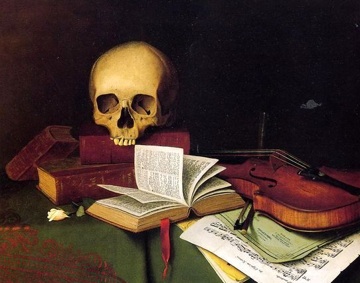Digital Immortality and Loving Wine
 A very close friend of mine confided in me yesterday that the primary thing he loves about wine is not its taste, not its connection to place nor the buzz it delivers. Rather, he said, it is the the "immortal quality" of wine that draws him to the beverage. Now, this gentleman is a relatively young man who has seen both his parents, a step parent, a wife and his only sibling die. I wasn't surprised with his confession.
A very close friend of mine confided in me yesterday that the primary thing he loves about wine is not its taste, not its connection to place nor the buzz it delivers. Rather, he said, it is the the "immortal quality" of wine that draws him to the beverage. Now, this gentleman is a relatively young man who has seen both his parents, a step parent, a wife and his only sibling die. I wasn't surprised with his confession.
By his explanation, a well made, "honest" wine embodies a time and a place and a person (or a people) and an idea that, once bottled, is forever kept in place—immortal— whether drinkable or not.
It's not hard to discount this idea as the longings of a person that has seen too much vanish before his eyes and before him.Yet, I can agree with him that wine can be immortal. But it's not the thing I like most about wine.
But this notion of immortality seems somewhat vacant if there is not something following the wine that explains it. Here I mean words. Most wines, even the very best, are and have been drunk without any record of their opening or their consumption or the effect they had on their killers. I didn't mention this to my friends. His views and confession yesterday really seemed too personal and imbued with reflections to sully with any qualifiers from me.
However, it did strike me that with the massive increase in words about wines now being written by denizens of the various on-line wine worlds and social networks that perhaps the conditions do or will exist in the future for wine to truly be called immortal.
One wonders what will happen to the thousands of tasting notes at Vinfolio, CellarTracker, eRobertParker, Snooth, Yelp, Facebook, blogs or at any of the other on-line venues in 20, 50, or 100 years. Will they be archived? Will they be searchable? Will Gary Vaynerchuk's images carry on into the distant future and with them at least on man's view of the 2006 Russian River Valley Pinot Noir vintage?
One thing is certain, every year it becomes easier and easier to store more and more information in smaller and smaller devices. There will be room to store all the information about wines we can imagine creating.
In addition to that it is important to note that it is not unlikely that everything we write on our blogs, in email, on our and others' Facebook pages, and everywhere else on the net will likely be archived, cataloged and left for retrieval at will. In addition giving my friend's idea of wine's immortality longer legs, does this suggest something about the legacy of individuals?
I've always been one to say that given the chance at immortality, I'd probably take it—assuming the cost was not too dire.

Wow, heavy stuff…it certainly seems that all of this wine info would be archived and searchable with relative ease in 20 or 50 years. And the same could be said of things written about people as well. Born in a different time (say, now), those loved ones of your friend’s would have as much written about them on blogs and websites and the like as the wines we are now making will most likely have. Not just famous folk, but everyday people as well(cue up the Sly Stone).
However, plenty of what has been written about me I would just as soon have lost in the ether.
Scott,
Yours is a good point. The historians of the future have a great many more resources (and different kinds) to work with. It must be a chaotic time within the world of academics given the proliferation of new primary sources.
I like this post, Tom, because it gets at one of the most important aspects of wine – the CONTEXT – in which it is consumed, shared, tasted, experienced.
One of the worst consequences of our over-focusing on “scores” has been the loss of CONTEXT in which most of us humans consume wine – in a particular time and place, with special people, perhaps to celebrate something meaningful.
Richard
How dire the consequences Mr. Wark? And what type of immortality? A few words written by friends? A Memoir? A Wiki page?
But then immortality is itself questionable. Even your memoir will burn up with the earth when our sun gives up and expires. I think, rather than hankering after the immortal, the present (tempered by the past) should be of greater concern.
With wines too I guess. Drink and savour and keep, but not for glory, only enjoyment.
Now that’s what I’d call a long finish…
Just yesterday, the NYTimes had a piece in it about what it is taking to store all the digital information navigating throughout the world. I suppose all that chatter will last about as long as nuclear waste.
I agree with Harry. Nothing lasts forever; good or bad. We need to take enjoyment from the present moment. We need to experience happiness in the very breath we breathe while reading these words. Before yearning to live forever we should ensure that we’re living the right way, right now.